Damning Supreme Court judgment lifts the lid on inner workings of Cairns Regional Council
Overseeing an understaffed unit for months and targeted by then-chief financial officer John Andrejic for sacking, a damning Supreme Court judgment has awarded a former employee $1.1m and lifted the lid on some of Cairns Regional Council’s inner workings.
Cairns
Don't miss out on the headlines from Cairns. Followed categories will be added to My News.
PAUL Ackers, the payroll supervisor at Cairns Regional Council, was upset, shaking and crying, and physically ill in the wake of what was to be his second last performance management meeting.
It was September 2015, and it was not a good time for Mr Ackers.
His unit had been understaffed for some months, he was working excessive hours, he perceived a union complaint made against him as retaliation for making changes at work, and then-chief financial officer John Andrejic had turned on him, wanting him ousted from the organisation, the Cairns Supreme Court found.
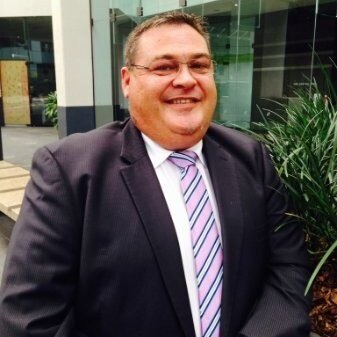
The week after Mr Ackers was seen to be physically ill outside his performance management meeting, he got in touch with council’s human resources manager Christine Posgate, asking to catch-up at a coffee shop to discuss his employment.
Ms Posgate testified to telling Mr Ackers at the time: “If you’re not enjoying it, and it’s not a good fit for you, then sometimes it’s like – it’s like a bad relationship. You’ve just got to know when to say goodbye”.
But more than six years later and after an 18-day trial, a court ultimately found it was Cairns Regional Council who was the toxic one in the relationship, awarding Mr Ackers $1.1 million in damages because of the council’s negligence.
The court found events that took place during Mr Ackers’ employment with the council between 2014 and 2015 caused his depression, anxiety and PTSD, including a severe stutter and tremor in his right forearm.
It was another seven days after catching up with Ms Posgate that Mr Ackers told the court he was stood down by HR advisor Rachel Faithful on a combination of medical grounds and there being no improvement in his performance.
He has not worked since.
In the wake of being stood down, medical records tendered to the court showed he slid into suicidal thoughts, barely slept, and would drink alcohol in binges of up to 40-70 drinks across two-day periods.
The court heard that even now Mr Ackers still gets nightmares of harassment at work with dreams of two staff trying to kill him every night, waking in a sweat.
The court did not hear any claims council staff ever tried to kill Mr Ackers.
So how did it all go so wrong?
Off to a good start
Mr Ackers, now 51, was 44 when he began working at Cairns Regional Council in September 2014.
Prior to that stint, he had a long history of work in the payroll sections of various employers and subsequently in his own payroll relief and consulting business, which ended in financial difficulty in about March 2013 in the wake of the collapse of Mr Ackers’ marriage.
When he joined as supervisor of the payroll unit, Mr Andrejic told him he had two mandates – “to fix the staff and fix the system”.
Mr Andrejic went on to become the council’s CEO from November 2016 and resigned in October 2020.
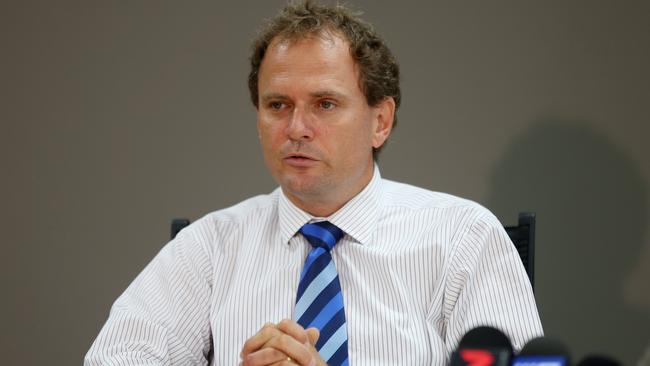
The council’s co-ordinator of the shared services branch Mandy Wise told the court there had been problems with the payroll system and with payroll staff prior to Mr Ackers’ employment, and Mr Ackers deposed that during the selection process he was told one of the problems was “staff error” and that previous supervisors had been unable to remedy the situation.
Principally, one of the issues with the payroll unit was the staff still had to complete a significant array of manual tasks for employees to be paid correctly and on time each fortnight, the court heard.
Justice James Henry observed the system carried “a high risk of human error, a risk bound to be magnified if the unit was inadequately staffed” – which is exactly what happened.
Mr Ackers set about making changes to the way the payroll unit operated, receiving good performance reviews in December 2014 and March 2015, the court heard.
But some of the staff were unhappy with the way things were changing and they went on sick leave in March and April after performance issues were raised.
The court heard Mr Ackers made ongoing requests to Ms Wise for extra staff, citing the increased workload on the remaining staff and himself.
Justice Henry said Ms Wise acknowledged he had done so, “but implausibly claimed she could not recall why, apart from ‘general workload’, he specifically needed extra staff”.
The court found the lack of staff remained the “status quo” until at least July 13, 2015, when Mr Andrejic decided to place Mr Ackers on a Performance Improvement Action Plan.
“The remarkable feature of this case is that when, after the end of the financial year, such errors and oversights were discovered by council it unfairly elected to blame the performance of the unit’s supervisor, Mr Ackers, rather than its own dereliction in leaving the unit inadequately staffed for a sustained period,” Justice Henry said.
The court heard how Mr Ackers began working significant amounts of overtime, including two all-nighters, to ensure council’s staff were paid on time.
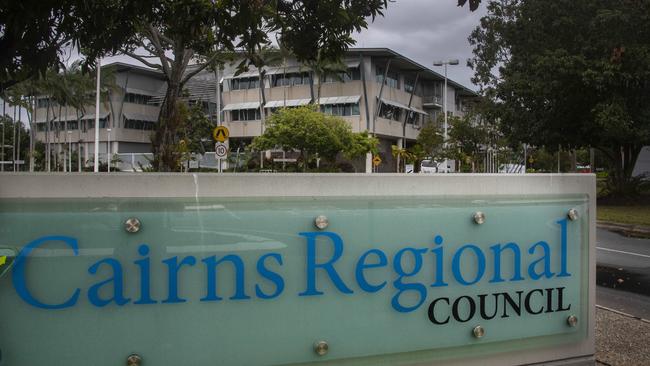
The union complaint
Another significant impact on Mr Ackers’ emotional wellbeing was a union complaint on May 22, 2015, about conduct it asserted could be viewed as sexual harassment, and other aspects of Mr Ackers’ behaviour and demeanour.
Among the complaints was that in November 2014 at Council’s Spence Street administration building, an employee was having problems with her contact lenses, Mr Ackers said her partner had “missed his mark” and “got sperm in her eyes”.
During the council’s investigation of the complaints, Mr Ackers complained about the inaccuracy of what he said but accepted “the substance of what he said was similar”.
As a result of the union complaints, three of which were substantiated, Mr Ackers was given a written warning.
He told the court Mr Andrejic had told him to “take the disciplinary action” and “see it for what it was and it will go away in 12 months”.
Mr Ackers also told the court that Ms Posgate and Mr Andrejic said he could be dismissed as a result of the warning and that they had to tell him that to appease the union, and that if he signed the warning the union would be satisfied appropriate action had been taken against him.
He did as he was told and signed the letter, the court heard.
Mr Ackers later told the court Ms Posgate and Mr Andrejic “should have stepped up for me as they knew the complaint was to get back at me for the disciplinary action (against underperforming staff).”
Justice Henry found Ms Posgate as the investigator of the complaint acted appropriately, but that the real significance of the handling of the situation lay in the council’s knowledge of the emotional impact it had upon Mr Ackers.
As the payroll unit continued to be understaffed during the end of financial year period – the busiest time of the year for the unit – pressure ramped up on staff and Mr Ackers.
Despite being visibly distressed at work on occasions, and being sent home or to see a doctor due to concerns about his health, little changed in relation to his workload or lack of staff.
While Mr Ackers was absent on sick leave, two staff from the finance section who assisted the payroll unit with its end of year financial tasks discovered some errors and raised them with Mr Andrejic.
He requested they do a partial audit, resulting in a document titled “Findings from Payroll Review”.
On July 8, after Mr Ackers had returned to work, he ran into Mr Andrejic.
In court, Mr Ackers said Mr Andrejic told him he “better have a plan” for the department because “they’d had enough”.
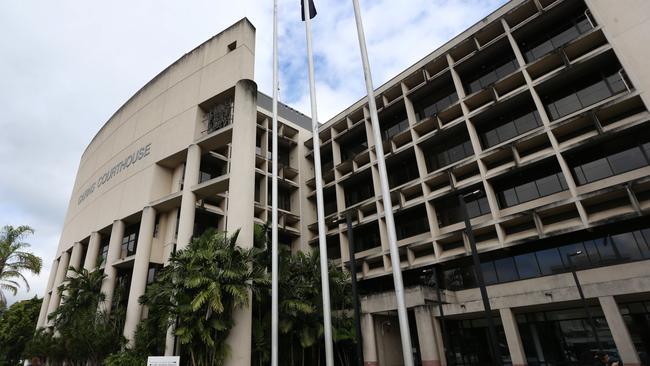
Justice Henry noted: “Exactly why Mr Andrejic moved from a passive to aggressive mode that day, and beyond, regarding the payroll unit’s operation under Mr Ackers is unknown. Council elected not to call him as a witness, despite the inevitable relevance of his evidence and the absence of evidence explaining his absence.”
The following day, Mr Ackers told Ms Wise that he was suffering and had suffered from grief-based depression since 2004 as a result of a number of deaths in his immediate family.
“I told Ms Wise things weren’t working in the payroll department and we needed more staff. I said my staff were burnt out and we needed help. I was crying when I said this,” he told the court.
Ms Wise denied in cross-examination that Mr Ackers was crying and visibly distressed.
Justice Henry said it was apparent from Ms Wise’ testimony she had “once again suffered an implausible lack of memory regarding how she responded to another obviously concerning event involving Mr Ackers”.
It was from this point that Justice Henry said the council was aware there was a foreseeable risk of psychiatric injury to Mr Ackers and they therefore had a duty to take reasonable care to avoid psychiatric injury to him.
Instead, Mr Andrejic began targeting him, Justice Henry said.
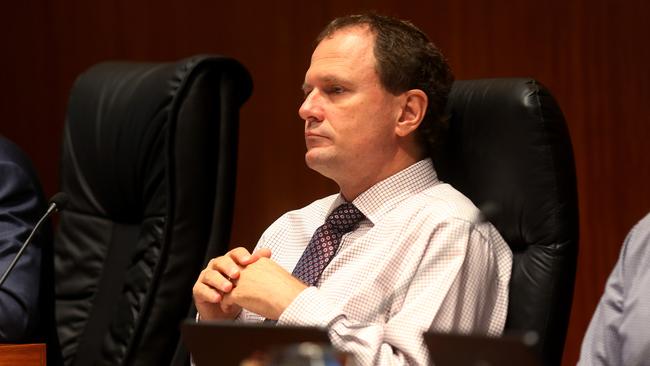
John Andrejic turns on Mr Ackers
A note from a discussion between HR advisor Rachel Faithful and Deanne Baker on July 13 was aired in court: “Paul – Rachel struggling to manage John (Andrejic) in relation to expectations, Paul is dead to John and has written him off doesn't matter what happens performance management or disciplinary action Paul won’t survive”.
The results of the payroll review, which identified a number of errors made by the payroll unit – not just by Mr Ackers – were used by Mr Andrejic to “move directly to targeting Mr Ackers”, the court found.
During a meeting with Mr Andrejic and Ms Wise on July 31, 2015, Mr Ackers told the court he was told he and his staff had made multiple mistakes in processing payroll and that he as supervisor was ultimately responsible for the mistakes of his staff.
Following the meeting, Mr Ackers was told he was being placed on a performance management plan.
Andrew Moore, who moved into Ms Wise’ position after she went on leave, told the court he at one point told Mr Ackers: “Paul, this is what needs to be achieved. If we can’t, there’s – there’s no coming back from that.”
Justice Henry found the meaning by that comment was that Mr Ackers’ job performance had become so unsatisfactory that Mr Ackers would lose his job if he did not meet the requirements of the performance improvement management plan.
“Yet the premise for purportedly concluding his performance had been unsatisfactory, and thus the conclusion itself, was flawed and unfair. The conclusion defies objective justification and I infer it was not arrived in good faith,” he said.
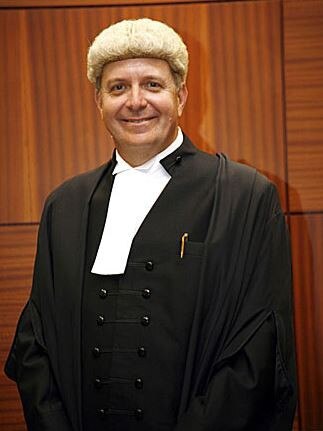
“It is incomprehensible that the cause could genuinely have been thought to be poor performance by a supervisor with no history of poor performance reviews, when the unit’s recent history of sustained inadequate staffing, and the accompanying inevitability of error and oversight, presented so obviously as the likely cause.”
Justice Henry said the “unexplained absence of Mr Andrejic as a witness” further compelled the inference the plan was imposed in bad faith.
As Mr Ackers later told the court: “I was just continually kicked until I broke completely”.
Justice Henry ultimately concluded the council had breached its duty of care towards Mr Ackers, causing his major depressive illness.
“His illness has and will continue to cause him significant loss, for which a substantial award of damages will be made,” Justice Henry said.
An emotional Mr Ackers said he was “relieved” that Justice Henry had found in his favour.
“All I’ve ever wanted was for the council to be held to account for what they’ve done to me,” he said.
“This decision is a vindication and shows that they were negligent.”
Cairns Regional Council was contacted for comment.
More Coverage
Originally published as Damning Supreme Court judgment lifts the lid on inner workings of Cairns Regional Council




